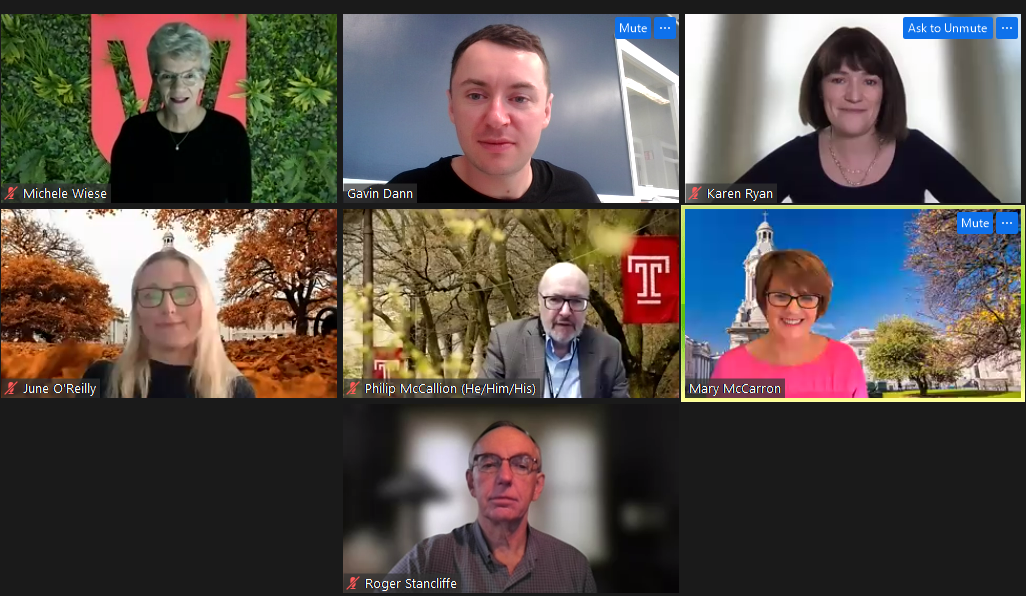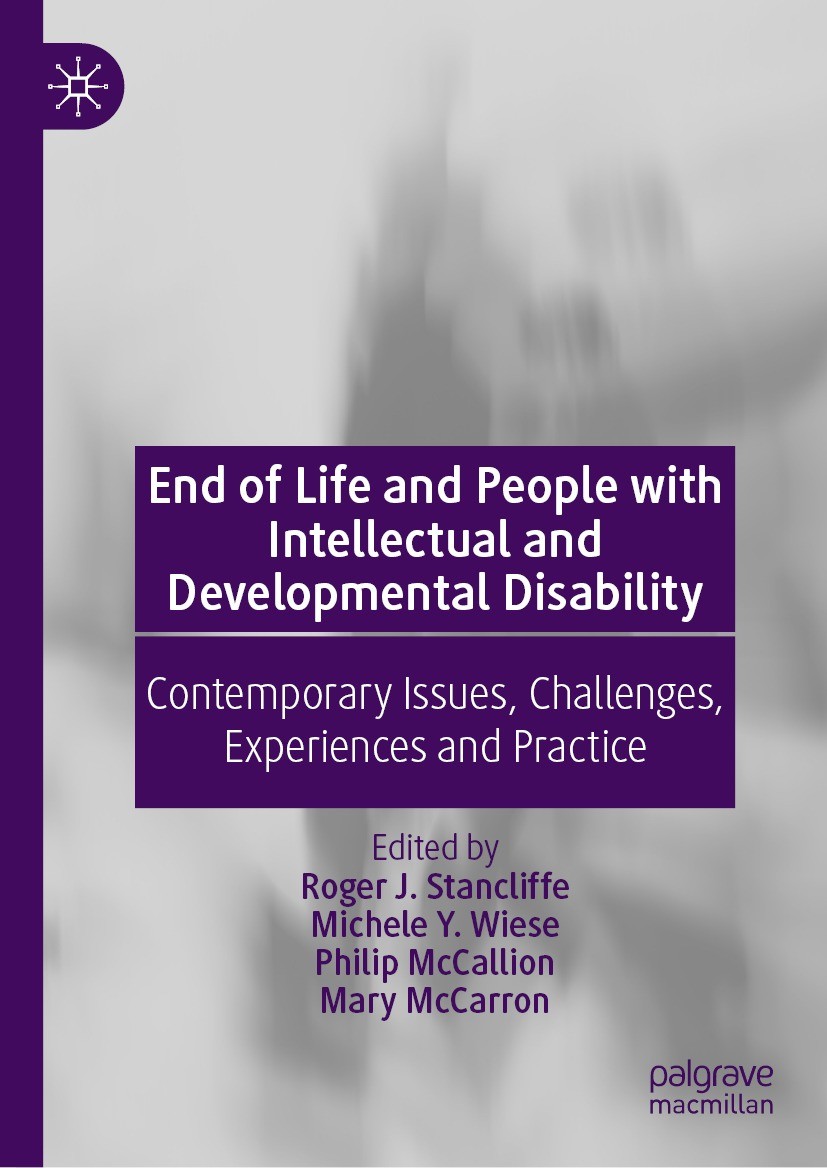September TCAID: In Focus - End of Life Care for People with Intellectual and Developmental Disabilities Webinar

For Palliative Care Week 2022, The Trinity Centre for Ageing and Intellectual Disability (TCAID) hosted a webinar on
End of Life Care for People with Intellectual and Developmental Disabilities. Prof. Mary McCarron, Director of the Trinity Centre for Ageing and Intellectual Disability and Professor of Ageing and Intellectual Disability, School of Nursing and Midwifery, Trinity College Dublin, Ireland launched the new book
‘End of Life and People with Intellectual and Developmental Disability - Contemporary Issues, Challenges, Experiences and Practice’ on Tuesday 13th September 2022.
This book is invaluable for researchers, practitioners and families across the disability and health sectors. It highlights contemporary international research and its translation into practice covering topics including: suicide, do not resuscitate orders, children, people with profound and multiple disabilities, death doulas, accessible funerals and the COVID-19 pandemic. Barriers and care challenges were identified with personal stories conveyed to ground the issues in lived experience. There is a list of resources, many designed specifically for people with an Intellectual and Developmental Disability.
“This is a thoughtful and compassionate book which examines every possible aspect of end of life and palliative care for people with intellectual and developmental disabilities. I can’t recommend it too highly.”
Baroness Sheila Hollins, Emeritus Professor of Learning Disability St. Georges, University of London, United Kingdom
“This expansive and long-overdue book explores end-of-life in all its complexity. It confronts both the taboo that surrounds death and dying, and extends our understanding of how broader contemporary issues in this space impact on the lives of people with intellectual and developmental disabilities. Importantly, people with profound intellectual and multiple disability and children receive specific attention. As a collection of current research and practice, this book challenges us to include and promote the individual decisions made by people”.
Brigit Mirfin-Veitch, Director, Donald Beasley Institute Dunedin, New Zealand

In recent years, a growing body of work has developed, that aims to ensure that people with Intellectual Disability are empowered to live their lives to the full, even in the face of serious illness and to receive better care at the end of life. The Intellectual Disability Supplement to the Irish Longitudinal Study on Ageing (IDS-TILDA) has provided essential data on key questions around end of life and caregiving.

Dr. Karen Ryan delivered the keynote on
‘The Process of Dying’. Dr Ryan is a Consultant in Palliative Medicine, St Francis Hospice and Mater Misericordiae University Hospital, Dublin, Ireland.
This informative and compelling keynote conveyed how to recognise and understand the dying process as it affects people with an Intellectual Disability. It describes the common signs of dying, considers barriers and facilitators to the recognition of these signs and reviews principles of best practice in end-of-life care provision and how it might shape how we as caregivers can respond. Dr Ryan emphasised the importance of assessing the persons capability, be patient and listen to them voicing their needs and wishes and that will help guide your response to support them. Communication is a hugely important element for both the person and their care giver. Dying is not a linear journey.
Following the keynote there was an engaging panel discussion with the editors and experts including:
Prof. Roger J. Stancliffe, Prof. Michele Y. Wiese, Prof. Philip McCallion, Prof. Mary McCarron & Dr. Karen Ryan.
Questions posed during the webinar included what resources are currently available and how to help a person with no next of kin to plan for end of life in terms of funeral arrangements etc., so their wishes are there to be carried out. In response, attendees were informed about a tool called Glancing Back, Planning Forward. Trinity Centre for Ageing and Intellectual Disability developed an accessible planning tool for people with an intellectual disability to help them plan so that their wishes can be respected at the end of their life. It is a tool for people with an Intellectual Disability, their families, and their carers to use as they pause to think about the future. It supports ongoing conversations and building knowledge, attitudes, and confidence for everyone involved so that wishes, and desires are realised. This project was supported by The All-Ireland Institute for Hospice and Palliative Care.
https://www.tcd.ie/tcaid/accessibleinformation/.
Webinar available now:
Home
With over
476 registrations for the event, feedback was very positive:
‘Thank you, very practical useful information and resources, excellent presentation!’
‘Thank you so much, very informative and relevance to clinical practice’





